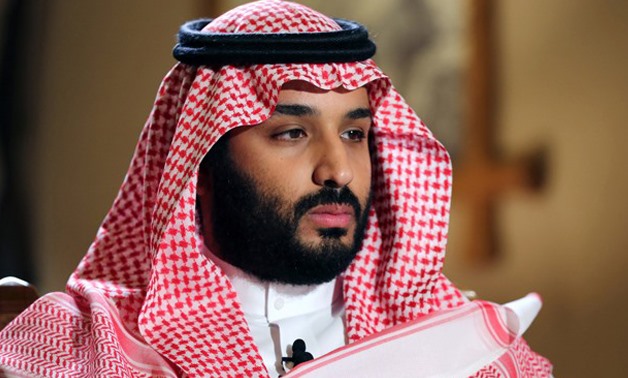
Saudi Crown Prince Mohammed Bin Salman - File photo
LONDON- 21 June 2017: Saudi Arabia's King Salman made his son, Mohammed bin Salman, next in line to the throne on Wednesday, handing the 31-year-old sweeping powers as the kingdom seeks a radical overhaul of its oil-dependent economy.
Below are analysts' views on what the promotion of Prince Mohammed, also known by the acronym MBS, means for Saudi oil policies and OPEC.
HELIMA CROFT, RBC CAPITAL MARKETS
The elevation of Mohammed bin Salman to the Crown Prince spot will likely mean minimal change to oil production policy but could bring more aggressive foreign policy moves that bring back the political risk premium.
The rise of MBS will also likely mean even more hawkish foreign policy moves from SaudiArabia and more intensified efforts to confront Iran.
Hence we contend that region could witness more near-term volatility and heightened risk of military confrontation ... The political risk premium may therefore be set to stage a comeback.
We contend that it will be full steam ahead with the planned partial listing of Saudi Aramco and the creation of the country's first serious sovereign wealth fund.
RICHARD MALLINSON, ENERGY ASPECTS
The Kingdom will need higher oil prices. Even if Saudi foreign policy remains assertive as MBS expands his influence, we do not see a change in oil policy at this time.
The market's fear of a breakdown in OPEC due to a more confrontational Saudi foreign policy (vis-a-vis Iran for instance) is unjustified in this regard.
Contrary to years of mistrust, MBS has been able to foster cordial relations with Russia, which has been key to bringing the non-OPEC countries to the table for the deal.
The main interest MBS has shown in oil policy has been his support for an initial public offering of up to 5 percent of Saudi Aramco, as part of Vision 2030. That policy was already moving ahead and now looks even more certain to occur.
AYHAM KAMEL, EURASIA GROUP
For the first time in two years investors will feel reassured that the economic reform plan Vision 2030 will not be scrapped. Predictability will bolster investor confidence, especially ahead of Aramco's IPO and MSCI EM inclusion.
Any doubt that Aramco's IPO will not occur, will now be put to rest.
FACTS GLOBAL ENERGY
The promotion would not result in any change in policy, which was already being driven by MBS. However, the policy of displaying aggressive attitudes towards Iran, Yemen, and Qatar would certainly be even more apparent.
The potential for further cuts by Saudi Arabia to keep prices above $50 per barrel is likely to be stronger.
The current policy of market management as well as market share is managed under MBS's watch so we should be prepared for Saudi Arabia to do whatever it takes to keep the prices above $50 per barrel. That may require cutting production back to the Nov 2014 level of 9.4 million bpd unilaterally.
The big challenge for MBS is to keep the system going beyond the end of next year when more cuts are needed and might even require a cut below 9 million bpd to stop prices from falling.
He then has to make the difficult call of fighting the battle with tight oil by letting prices go down or cutting production to boost prices and hoping that U.S. production plateaus. It is hard to predict which direction he will go in.
If the Aramco IPO is to go ahead, prices cannot go below $50 per barrel, meaning either there must be further production cuts or the IPO would be postponed and/or cancelled.
OLIVIER JAKOB, PETROMATRIX
MBS was already the strong hand in Saudi Arabia, this latest development ... confirms that he is the de-facto king of Saudi Arabia.
Under his watch, Saudi Arabia has developed aggressive foreign policies (Yemen, Qatar) and he has not been shy about making strong statements against Iran.
While this can be considered bullish in the medium-term, on other hand MBS has not hesitated to kill the Doha oil cut agreement attempt at the last minute and he has threatened to unleash the full Saudi oil capacity if there were too many free-riders.
His aggressive stance against Iran makes it unlikely to see greater Saudi participation in supply cuts without Iran cutting production as well.
If history is any guide then there is a risk to see Saudi Arabia threatening again to flood the market unless others show some appetite for larger cuts (and Russia is not indicating that right now).

Comments
Leave a Comment